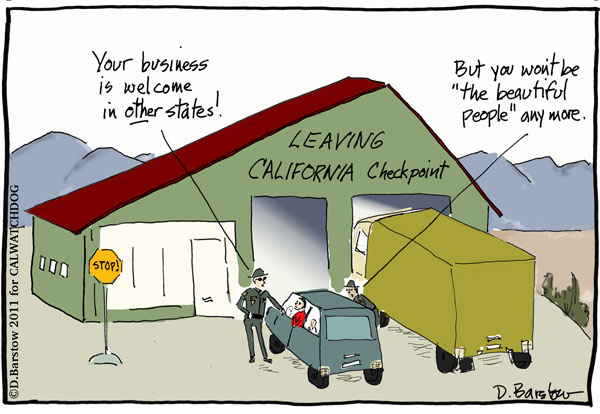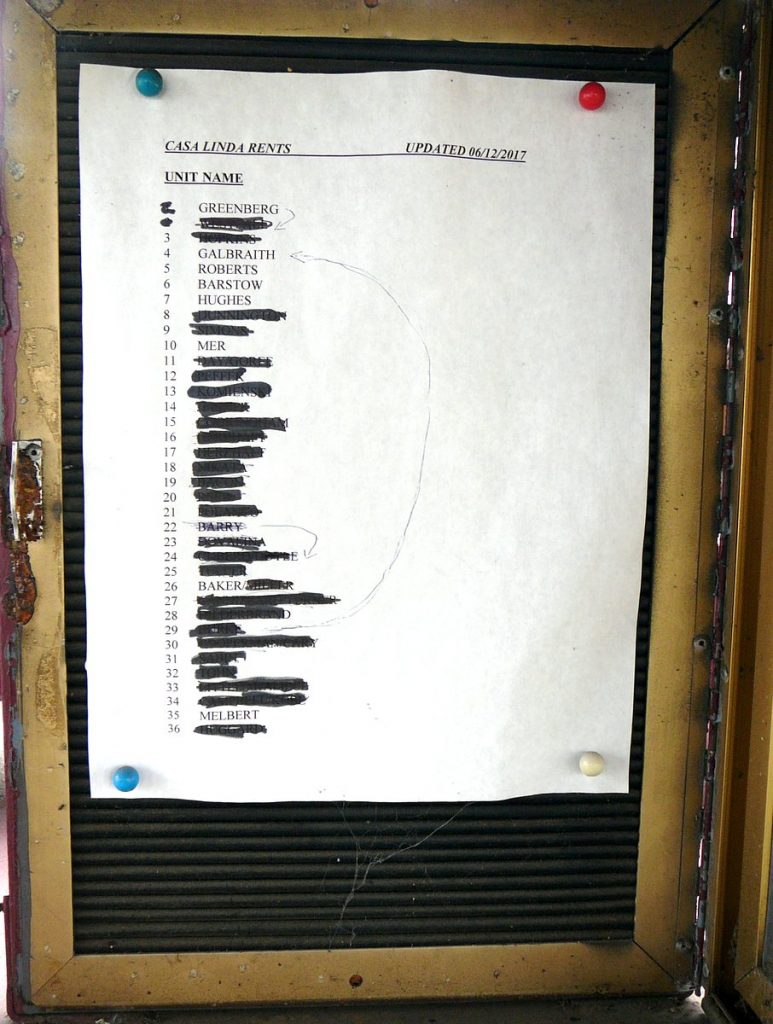
Someone asked me that the other day, and it’s actually something I struggled with for a long time. I am evicted as of March 31, and I am in wracking agony and fear. I have no place to go, and no one to help me move. But the other side, the landlord’s rights, is important to look at, too.

I should clarify that I’m really not much of a political person, and get bored by the news. But after meeting some folks at the LA Press club who had really good parties, I found out that a lot of what I’ve always believed is really Libertarian. I jumped into political cartoons for Slate and many other places with that platform, including LA Daily News. For a few years I worked for a think tank up North which was hardcore Libertarian, so that gave me more opportunity to learn what I like and don’t like. (Climate change, animal rights, clean earth, yeah, I do vote for them.)
Here is a sensible site about what Libertarians are about. (And one of the best designed websites I’ve seen in years.) On the other hand, I’m not impressed with the California party’s take on Proposition 10.
Rent Control deters the development of new rental units and instead incentivizes developers to build condos which are out of reach for most moderate to low income Californians. And although rent control offers savings to current renters, it also reduces landlords’ incentives to maintain their properties. In many areas with strict rent regulations, these restrictions can contribute to neighborhood decline.
Not one thing in there is true. I love the way they suggest that only lazy landlords buy rent control properties, and then let them go to ruin! Wow, great business plan! 🙂
Rentals from a Libertarian perspective
would start with the idea that no city or state should determine how much money you make, or how you make it, so long as it’s legal. Get your hands off my wallet! And would include that setting rates, and evicting anyone, for any reason or no reason, is the landlord’s right, to run his or her business.
your hands off my wallet! And would include that setting rates, and evicting anyone, for any reason or no reason, is the landlord’s right, to run his or her business.
But being a landlord is not just running a business; it’s a people business, just like being in the medical field or owning a restaurant. You are responsible for some part of the public’s health and lives beyond the accountant.
Why? Human survival requires:
- Food
- Water
- Shelter
A landlord has a huge responsibility to not only make sure her buildings and land are safe, but also her tenants. She has the pleasure of giving people homes and shelter, but also the duty not to destroy that. Do no harm, as the doctors say.
Some landowners are happy to get thousands of dollars in rent control buildings from stable tenants, even if it only goes up 3% a year with RSO. Apparently, a LOT of landlords! Rent Control takes some problems off the landlord’s hands, too, by taking care of complaints (usually not doing much, IMO) handling inspections, and hand-holding the tenants.
And even with Rent Control, owners can always raise the rent to whatever they want when someone moves out. That’s actually the best situation for everyone. The landlord gets to test the market, and gets a cold fish in the mouth if no one will pay his exorbitant higher rent, the former tenant has moved by his own will, and the new prospective renter has total freedom to say yay, or no, sir, or bargain.
That’s a free market.
But what about sitting, current tenants? They have already invested in their home (apartment) and the neighborhood, and may be incapable of finding comparable shelter elsewhere, or not be capable of searching.
Should there be any limits on how high their rent can increase? This is trickier. because it’s not a free market at all, just like there’s no “fair market value” for current tenants. Why? Because it doesn’t meet any definition of Fair Market Value when one of the parties is helpless. From Publication 561 of the IRS:
It is the price that would be agreed on between a willing buyer and a willing seller, with neither being required to act, and both having reasonable knowledge of the relevant facts.
Here’s a legal definition, which is almost the same. As I’ve said before, there is no relationship so unequal as that of landlord/tenant, except maybe parent/young child or landowner/slave. Almost no tenant has any information, or the facts, and is almost certainly not willing to act, and yet is required to act, to keep a roof over her head.
So, although a landowner is free to raise the rent sky high if it’s a non-RSO building, can he, or should he? He might cause harm to others, and not even be sure what he could get in the open market. Here in 2965 Waverly Drive, those tenants who didn’t get an eviction notice got rent raises from $200 to $1100 (and some were forced to move into another, smaller apartment, as well.)
When rent raises are this high, they are really hidden evictions, which is why the anti-harassment law is being studied in the City Council right now. Meanwhile, ethics come into play: how much harm are you doing to another person, while still protecting your investment?
Evictions as a business decision

Eviction without good cause is the ultimate deprivation of other people’s freedoms. To quote the Libertarian Party’s website mentioned above:
Evicting people always, always, hurts families, singles, and the community. And also the city, who must then shoulder the burden of an unstable human and economic collapse. Has anyone not heard about our housing crisis in this city? Most homeowners don’t jump from one house to another. Why should renters? That’s why local and federal government hands out the big bucks to home owners all the time – it wants to help them stay in their homes!
And evictions are violent – it’s a situation where the tenant has very little or no control. It’s a bullying situation. And when you get thrown out of it, it’s a matter of life and death; and not everyone lands on their feet.
Landlords who can’t figure out how to run a business without brutally hurting their very own tenants should get a real job, as the LA Tenants Union likes to say. They’re gross polluters of the housing crisis, and they should be stopped and fined, not tolerated.
Libertarians hate evictions. All normal people do. You have every right to protect your own property that you paid good money for, but not to hurt others along the way. That’s abuse.
PS. If you haven’t checked the About Page recently, I added a lot of links to our media coverage, for which we are so grateful. And I added a Glossary of rent lingo. And now I have to add Fair Market Value to it!
